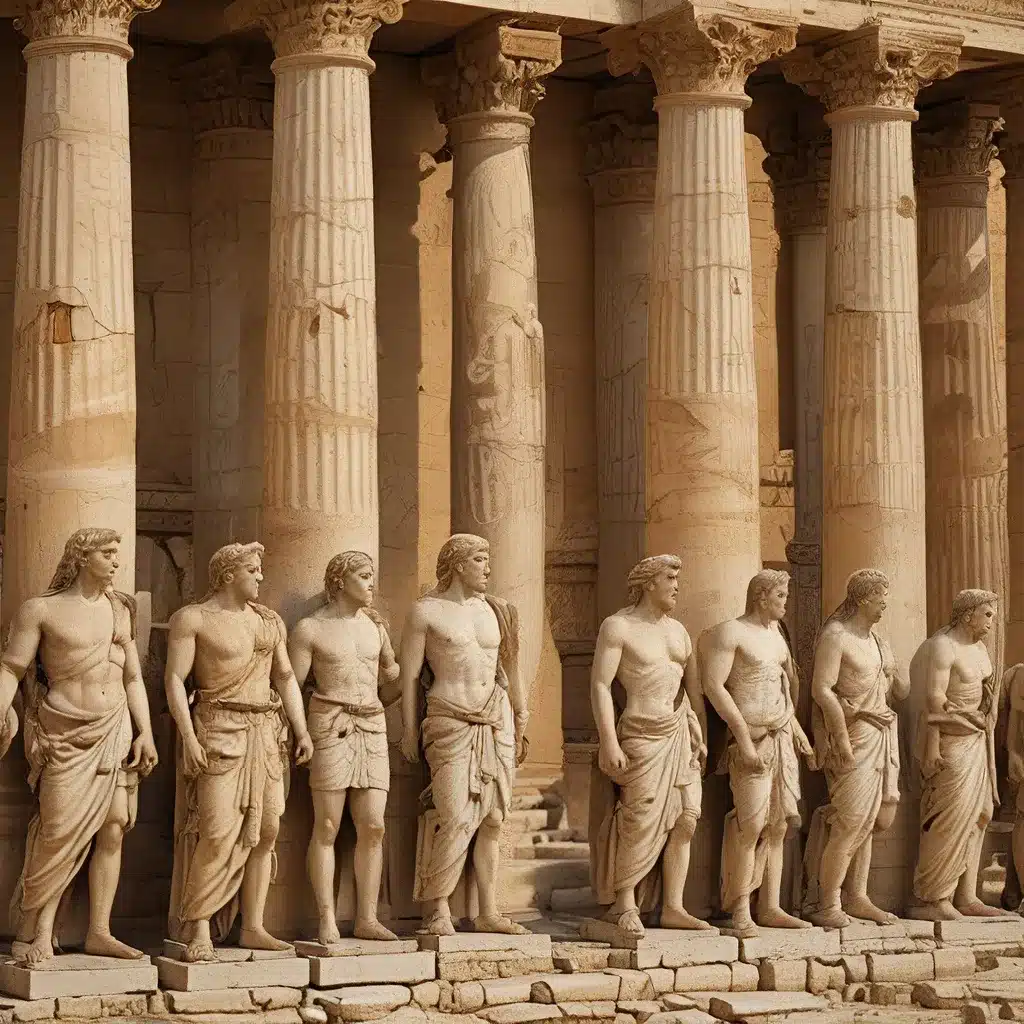
The Enduring Legacy of Ancient Rome
The ideas and culture of ancient Rome have left an indelible mark on the modern world, influencing art, architecture, science, technology, literature, language, and law. Though thousands of years have passed since the Roman Empire flourished, its impact can still be seen and felt across the globe.
One of the most striking examples of Roman influence is in the realm of art and architecture. The Romans, while heavily influenced by ancient Greece, were able to make significant improvements to certain borrowed Greek designs and inventions. For instance, they continued the use of columns, but the form became more decorative and less structural in Roman buildings. Additionally, the Romans developed curved roofs and large-scale arches that were able to support more weight than the post-and-beam construction used by the Greeks. These arches served as the foundation for the massive bridges and aqueducts that the Romans constructed.
The Romans were also exceptional engineers, demonstrating a deep understanding of the laws of physics. They harnessed the power of water, using it to power mines and mills, and developed an expansive road network that was a remarkable achievement at the time. Their knowledge of agriculture, including techniques such as crop rotation, pruning, grafting, seed selection, and manuring, is still used by modern farmers today.
The Enduring Impact of Roman Literature and Language
The literature of the ancient Romans has also had a lasting impact on the world. During the “Golden Age of Roman Poetry,” poets such as Virgil, Horace, and Ovid produced works that have inspired countless authors, including Chaucer, Milton, Dante, and Shakespeare. Shakespeare, in particular, was fascinated by the ancient Romans and drew inspiration from their stories for some of his plays, such as “Julius Caesar” and “Antony and Cleopatra.”
Beyond literature, the Roman language, Latin, has had a profound influence on the Western world. Latin became the basis for a group of languages referred to as the “Romance languages,” which include French, Spanish, Italian, Portuguese, Romanian, and Catalan. Many Latin root words are also the foundation for a significant number of English words, and the English alphabet is based on the Latin alphabet.
The Legacy of Roman Law and Justice
The ancient Roman justice system, while harsh in its punishments, has served as a model for many countries’ legal systems, including the United States and much of Europe. The Roman system included a preliminary hearing, where a magistrate would decide whether there was a valid case, and a trial by a prominent Roman citizen, where witnesses and evidence would be presented. This framework has influenced the development of modern court proceedings.
Additionally, the use of Latin words in the legal system is a testament to the Romans’ lasting impact. The Roman laws and court system have provided the foundation for many countries’ approaches to justice, demonstrating the enduring legacy of this ancient civilization.
The Lasting Influence of the Roman Empire
The ancient Romans were able to leave a lasting legacy on the world through their remarkable achievements in art, architecture, science, technology, literature, language, and law. Their impact can be seen in everything from the bridges and aqueducts that still stand today to the words we use in our daily lives. The Roman Empire’s influence has undoubtedly shaped the development of Western civilization, and its legacy continues to be felt in the modern world.
As we explore the rich history and cultural significance of the ancient Romans, we can better understand how their ideas and innovations have stood the test of time and continue to shape our own societies. The enduring impact of the Roman Empire serves as a testament to the power of human ingenuity, creativity, and the ability to leave a lasting mark on the world.
The Lost Kingdoms is dedicated to uncovering the mysteries and cultural legacies of ancient civilizations, providing readers with a deeper understanding of our shared human history.


